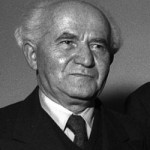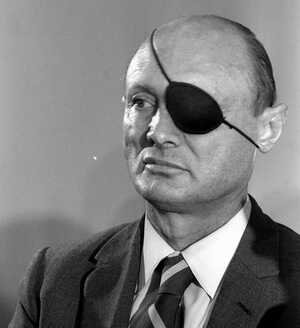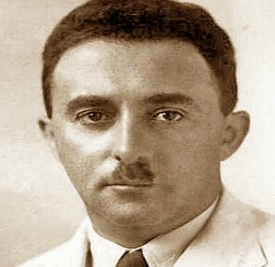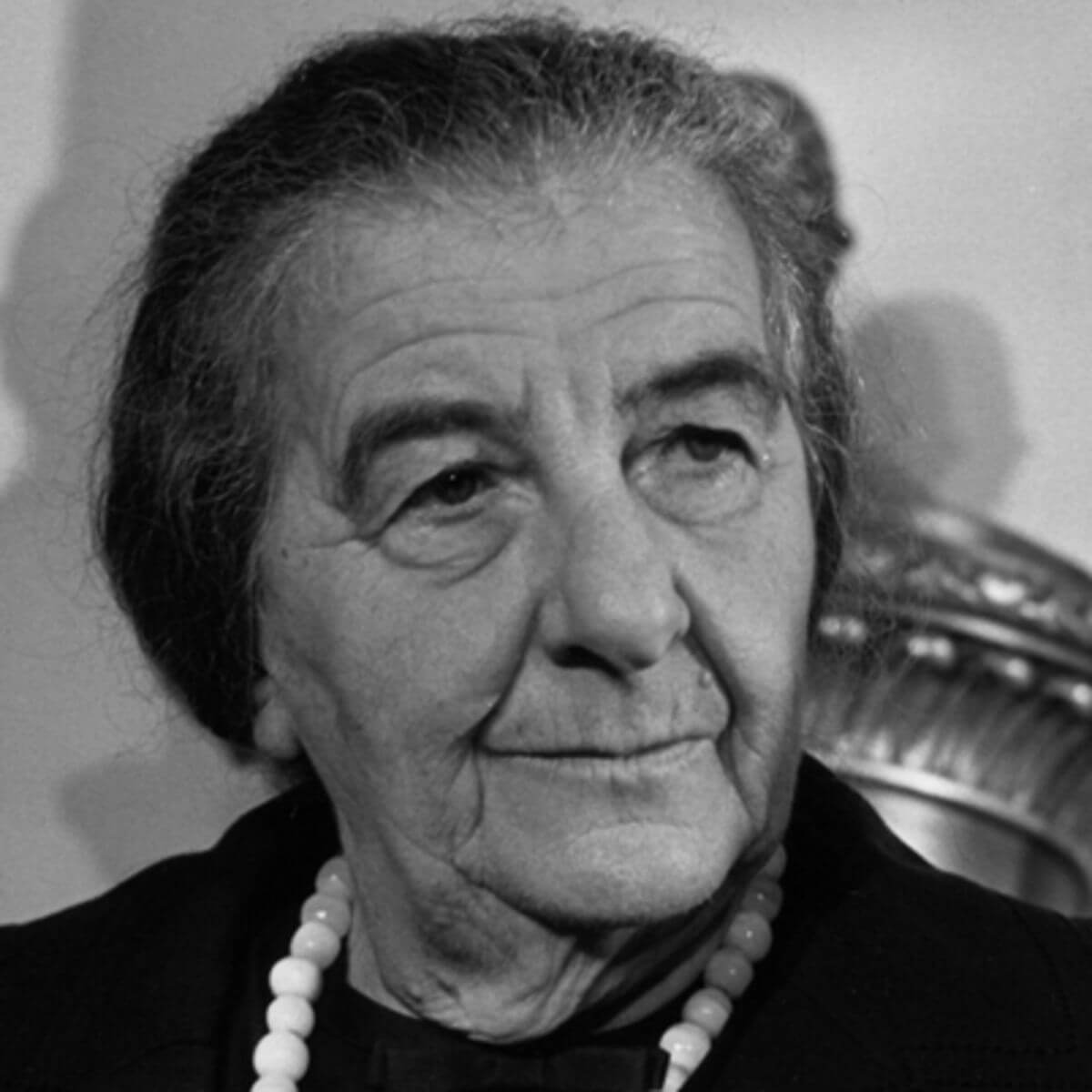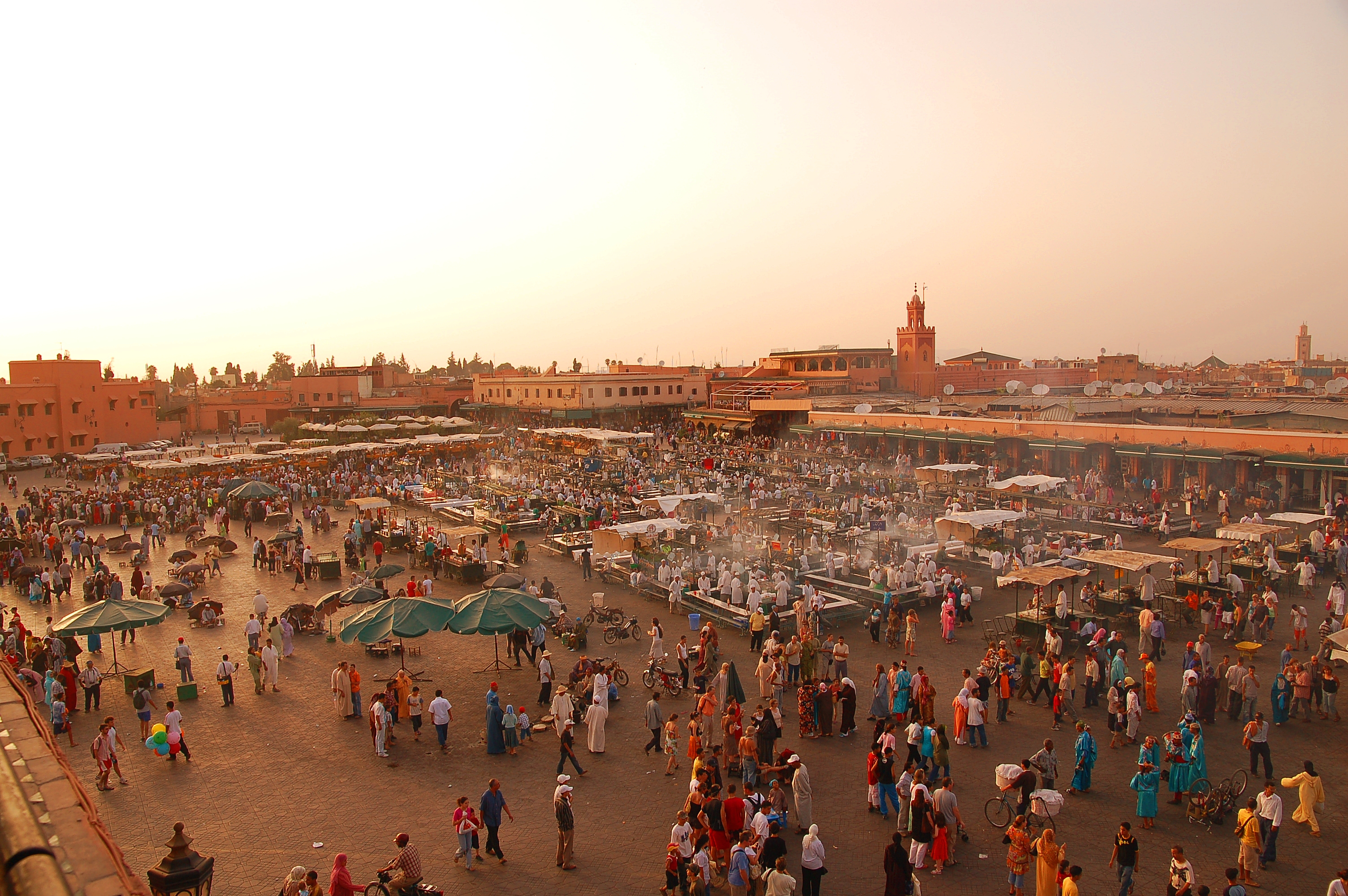
גIsrael and Egypt open peace talks in Marrakesh, December 1977
ג.1 | President Sadat and Prime Minister Menachem Begin Talk about Talks in Jerusalem
During Egyptian President Anwar Sadat’s historic visit to Jerusalem in November 1977, presented in the previous chapter, the Israeli and Egyptian leaders considered the question of how to continue the contacts between them, the format of the talks and the subjects on the agenda. Israel wanted to focus on bilateral relations and the terms of a peace agreement; Sadat and the Egyptian delegation demanded to discuss Israeli withdrawal from all the territories occupied in 1967 and a solution to the Palestinian problem. Naturally they were also very interested in Israeli withdrawal from the Sinai peninsula.
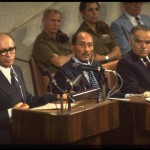
Menachem Begin and Anwar Sadat in the Knesset, 20 November 1977, Ya’acov Sa’ar, GPO
In a private conversation between Sadat and Begin, they exchanged ideas on arrangements in Sinai. Sadat said that he was willing to declare the Straits of Tiran an international waterway and to demilitarize the Sinai east of the Mitle and Gidi passes. He proposed that Foreign Minister Moshe Dayan and his Deputy Premier, Hassan Tuhami, who had already met in Morocco in September 1977, see report in English), should meet again and “talk business” (Document 31 in the publication, in Hebrew). The second meeting with Tuhami took place in the palace of King Hassan II in Marrakesh. They discussed security arrangements in the Sinai peninsula after Israeli withdrawal, the fate of the Israeli settlements and how to continue the peace talks.
ג.2 | Moshe Dayan and Egyptian Deputy Premier Tuhami meet in Marrakesh, 14 December 1977
After the visit to Jerusalem, Sadat called an international conference in Cairo to prepare a resumption of the Geneva Conference of 1973. Syria, Jordan and the PLO refused to come and the US, Egypt and Israel sent low level delegates. Meanwhile, on 2 December 1977 Foreign Minister Dayan left for another secret meeting in Morocco. He met Tuhami in the royal palace in Marrakesh, in the presence of King Hassan II. Dayan brought with him ideas for security arrangements in Sinai to be supervised by mixed Egyptian-Israeli forces or by a UN force. The Israeli settlements should remain and their inhabitants would be subject to Israeli courts. Dayan and Begin had discussed these ideas between themselves, but they wanted to test the Egyptian reaction before bringing them to the government. Dayan also presented proposals on the Golan Heights, Judea and Samaria and Gaza. Israel would not withdraw from Judea and Samaria and Gaza, but a new proposal was being prepared – a hint at the Autonomy Plan being drawn up in Jerusalem.
Tuhami suggested raising the level of the delegates in Cairo to that of ministers and emphasized the importance of the reaction off the other Arab states, who were meeting in Tripoli. He presented a working paper from Sadat and said that in his opinion the Israeli settlements could not remain.
At dinner after the talks the atmosphere was gloomy, and King Hassan tried to improve matters, saying to Dayan “You [the Israelis]] cannot sit on bayonets. You have to find a way to peace. You look sad and tense and not your usual self.” Dayan replied: “I am sad because I do not see any progress in the Egyptian stand.” It was decided to meet again the next day.
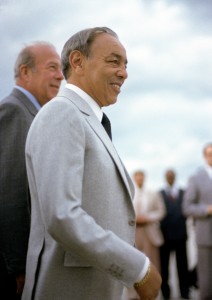
King Hassan of Morocco arrives for a visit to Washington D.C., 1982, Wikimedia
At the second meeting Dayan presented a paper on the Israeli proposals and Tuhami again emphasized the importance of full Egyptian sovereignty in Sinai. However a temporary solution for the Israeli settlements might be found. He gave Dayan a message from Sadat and asked for details of the guarantees Israel wanted. Dayan asked for permission to give the Americans information about the talks. The King urged them to make an effort and “to overcome minor problems like Sharm (el Sheikh). The final aim is peace”. He added that he would be glad to receive Begin in Morocco. However plans for a visit to Morocco by Prime Minister Begin and his wife did not materialize.
Here you can see the report (in Hebrew) by the Mossad, the Institute for Intelligence and Special Operations, which helped to organize the meeting on the stages of the meeting, the first attempt at real negotiations between Israel and Egypt.

